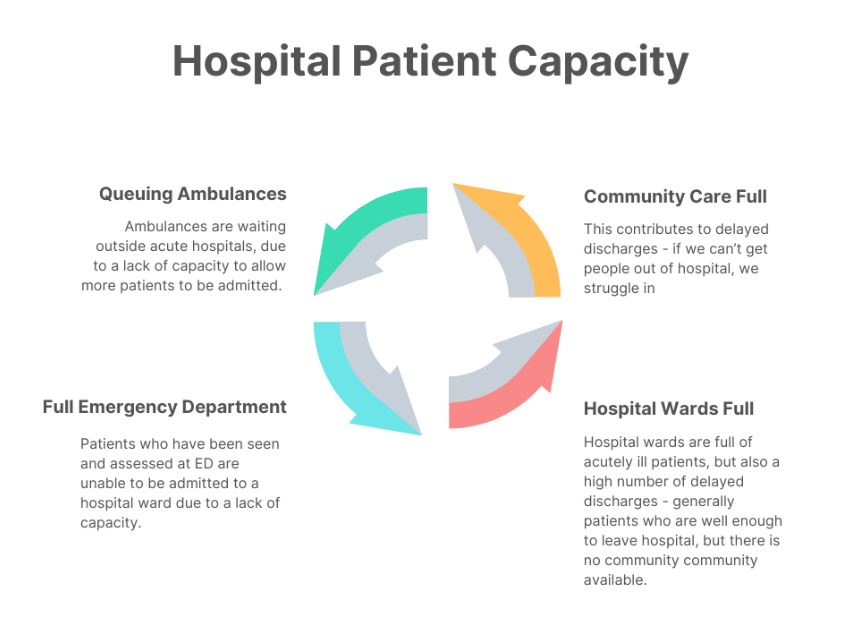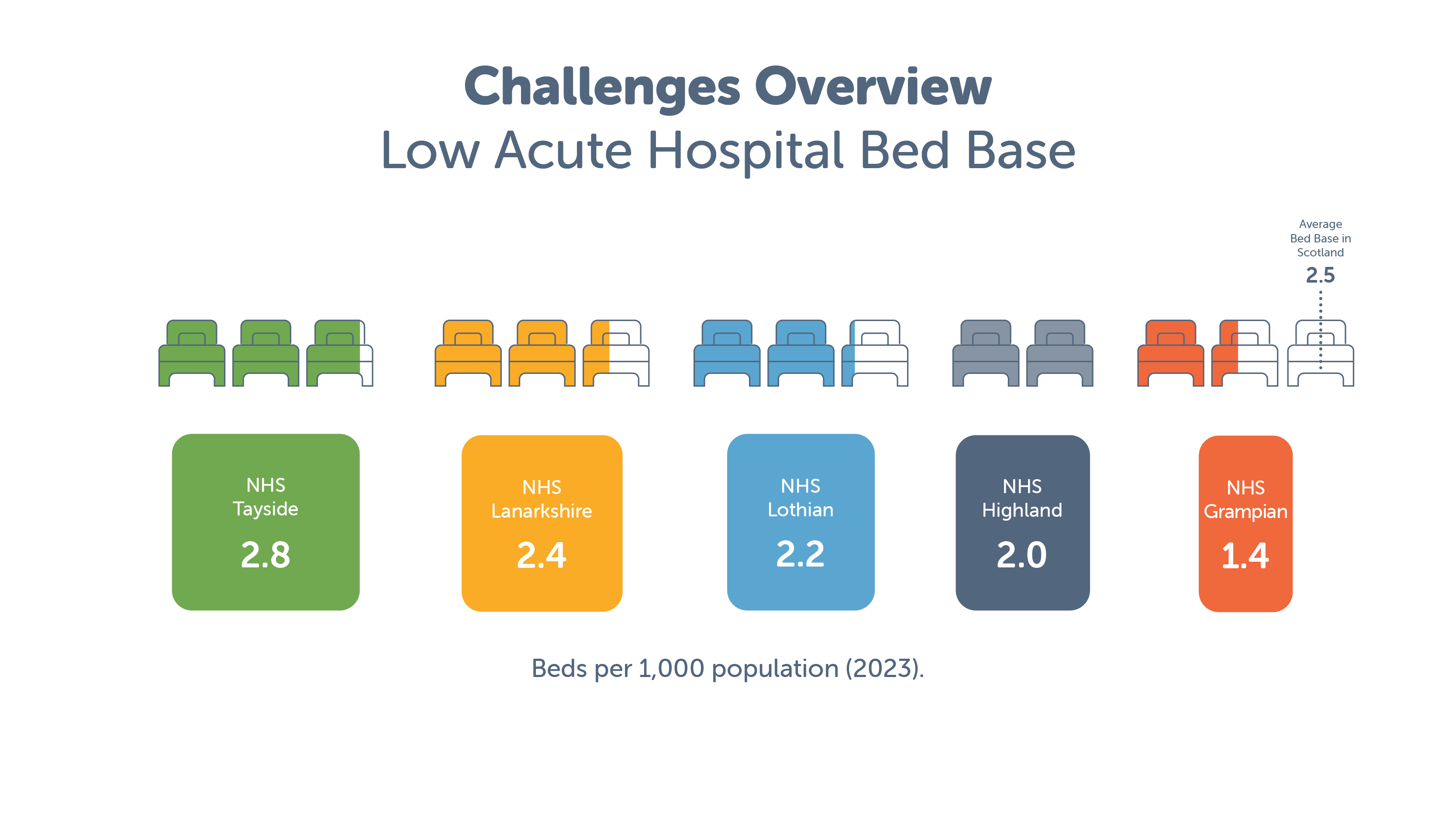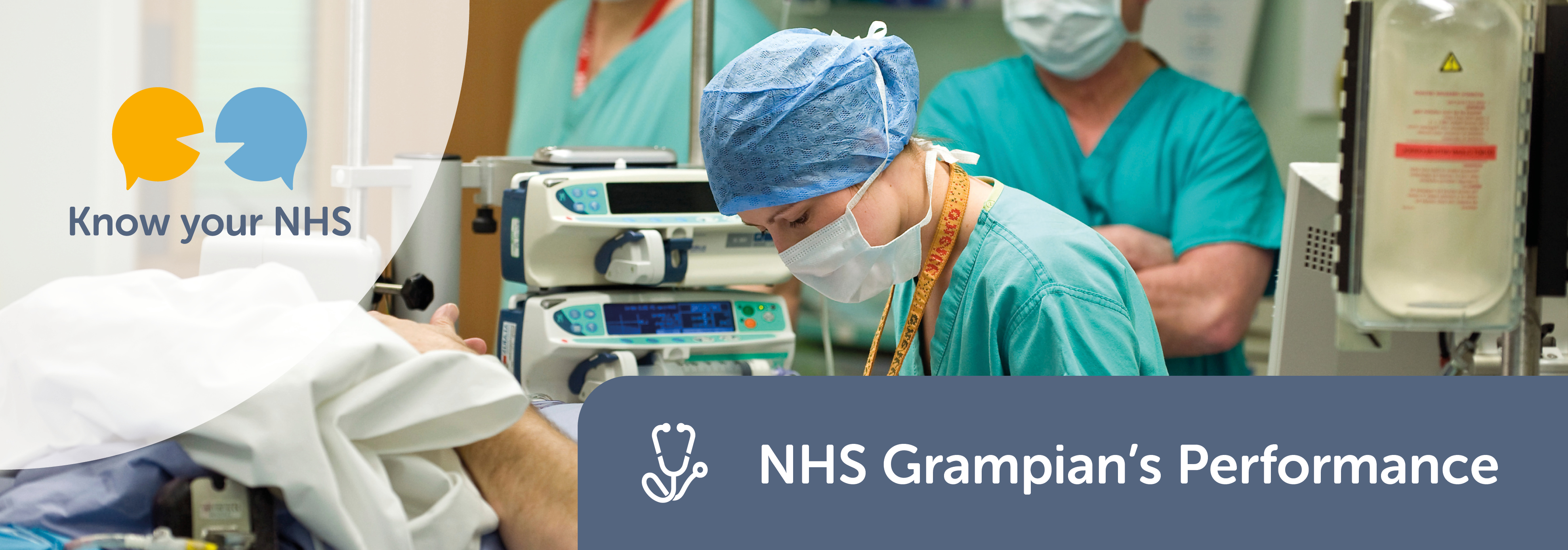NHS Grampian’s Performance
We are all too aware our performance in many areas is not where we would like it to be. The time patients spend in our Emergency Departments, the time ambulances have to wait outside our hospitals and the time spent waiting for outpatient appointments are some examples of this for which wholeheartedly apologise.
We know this is not what you, the public, deserve and it is not what we, as health care professionals, want.
Our staff continue to go above and beyond on a daily basis in very challenging circumstances – and we are incredibly proud of their achievements and grateful for the excellent care they continue to provide every day to thousands of patients despite the challenges.
Why is this happening?
In short, NHS Grampian has too few acute hospital beds and too few staff in some key service areas to cope with demand, which continues to rise. Likewise, our local Healthcare Partnerships do not have enough capacity in the community to support patients to leave hospital – meaning we are unable to free-up beds for new patients to be admitted. On any given day in the north-east around **180** patients who are well enough to leave hospital, remain in one of our beds, due to a lack of capacity in the community.
In Grampian, there is not enough funding or physical space to make any significant improvement in these areas imminently – meaning, whilst we know what the issues are, there is no silver bullet solution to overcome them.
Since at least 2018, NHS Grampian has had the lowest number of acute hospital beds in Scotland – and we remain the second lowest funded board per head of population. NHS Grampian has 1.4 beds per 1,000 people, while, for comparison, Greater, Glasgow & Clyde has 3.6 and Tayside has 2.8.

An internal review last year showed that NHS Grampian would need an additional 170 beds to make meaningful improvements to patient flow and meeting targets. With a night in an acute bed in Grampian costing upwards of £1,375 per night, we simply do not have the funds available to put these beds in place – with the annual cost of these beds costing upwards for £85million, at a time we are required to save around £140million in the new financial year.
What are we doing locally?
Given this lack of capacity to meet demand, our current financial constraints, and, as Audit Scotland recognised last year, a ‘limited ability to increase capacity’ we cannot simply create new staffed beds to solve the problem.
We continue to work within our means and be innovative. Our ‘Call Before You Convey’ service, has lead to a reduction in the number of ambulances bringing patients to hospital unnecessarily. Whilst we continue to reduce the length of hospital stay for patients where we can through initiatives like:
- Our move towards robotic surgery, which in many cases means less healing and hospital time for patients
Despite our smaller share of resources, the Centre for Sustainable Delivery has acknowledged that NHS Grampian is using the funding and resources we do have very efficiently. We’ll continue to do that, while looking for ways to improve the service you experience with what we have.

How can you help?
We would absolutely reassure the public that, as they would rightly expect, rather than working on a first come, first served basis, we prioritise people based on clinical need and the urgency with which they need care. All cases arriving at hospital are triaged, with those facing life-threatening situations – such as heart attacks or strokes – being admitted rapidly for treatment as an absolute priority.
The vast majority of patients use our services in the correct way , but it is vital you phone NHS 24 on 111 before attending the Emergency Department or a Minor Injury Unit – unless the situation is life threatening, for instance a suspected stroke of heart attack, in which case you should call 999. Using the 111 service allows us to keep ED waiting times to a minimum and better manage hospital capacity.


